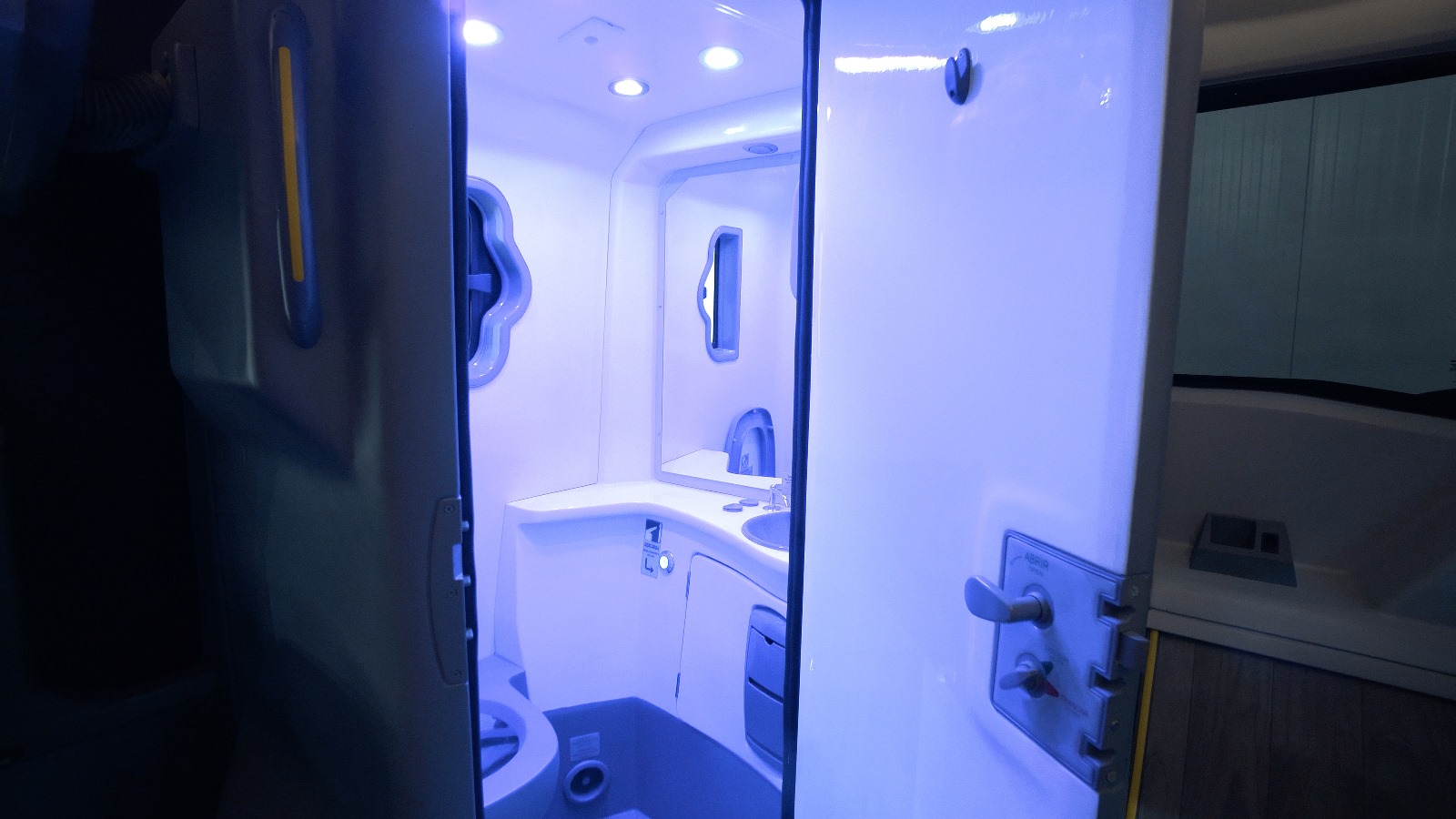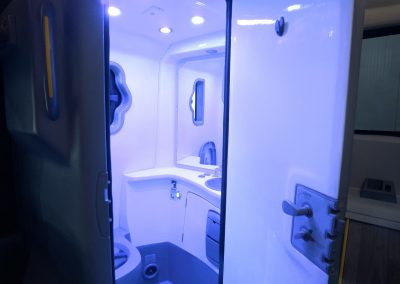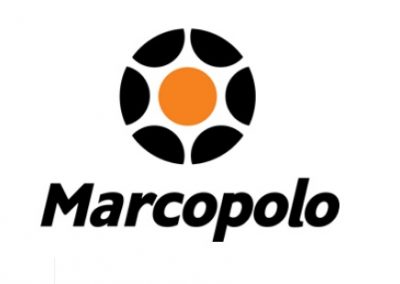MARCOPOLO DEVELOPES A SYSTEM FOR BUS RESTROOMS THAT SELF-DISINFECTS USING ULTRAVIOLET LIGHT

MARCOPOLO DEVELOPES A SYSTEM FOR BUS RESTROOMS THAT SELF-DISINFECTS USING ULTRAVIOLET LIGHT
The use of UVC ultraviolet radiation in bus restrooms is another of Marcopolo’s initiatives to promote biosafety in public transport
Within its investments and actions program for the application of innovation and technology in the development of solutions and products to collaborate in the fight against the Covid-19 pandemic as well as aiming to help safely resume mobility, Marcopolo has just developed an unprecedented system that uses ultraviolet light to disinfect bus restrooms.
Rodrigo Pikussa, Director of Marcopolo´s Bus Business, comments that this is another initiative that reinforces Marcopolo’s concern with people. “Our actions, since the beginning of the pandemic, were based primarily on protecting people, both our collaborators and the communities where we operate. Now, with our biosafety initiatives on board, we take an additional step to protect users of our products and allow society to return to its activities, as close to normal as possible”, he says. The executive adds that aside from helping to make vehicles safer during the Covid-19 pandemic, this new feature is a legacy that Marcopolo intends to carry forward in its vehicles, because with it, the brand’s bathrooms will always be 100% clean and ready to be used, avoiding the transmission of countless other diseases.
The new system received approval from the Clinical Microbiology Laboratory at Universidade de Caxias do Sul, with an efficiency greater than 99.99% in antimicrobial action. This demonstrates that the use of ultraviolet UVC radiation in bus restrooms acts to promote biosafety in public transport, considering the Covid-19 pandemic. The technical report is available for access at https://bit.ly/EficaciaAntimicrobiana.
According to Luciano Resner, Marcopolo’s Engineering director, since the pandemic hit the country, the company has created specific groups to seek alternatives and solutions to minimize the impacts on business and collaborate in combating the spread of Covid-19 and its impacts on society. “One of these groups has been working intensively to develop and seek solutions to ensure safety and well-being in public transport. This new system is the third innovation presented to the market. The first was FIP Onboard, a service already available to the market from Marcopolo Next Services, to disinfect the inside of the bus, and the second, the protection kit for drivers and fare collectors”, he explains.
According to Resner, all buses with restrooms can receive the new system. “The only thing that needs to be assessed by our technical team is to ensure that safety devices and passenger detection are present”, adding that another important precaution taken by the company’s engineers was to develop devices that prevent the ultraviolet light from being activated with the presence of passengers inside the restroom. “UVC is extremely efficient in this application, but at the same time it is harmful to health, which is why its use must be restricted to closed spaces, without passengers being directly exposed to the light.”
The new system is already available to customers and can be installed both in vehicles in production and in units already in circulation on the market and will be sold as a kit, for all Marcopolo, Neobus and Volare vehicles.
About the system
The system consists of a set of ultraviolet lights in a quantity and intensity adjusted to the configuration of the environment, which are automatically activated after the restroom is used or in automatic cycles during the use of the bus.
UVC radiation eliminates viruses, bacteria and other microorganisms because it can penetrate the cells of these pathogens and their genetic structure. There is also evidence that ultraviolet rays can damage the amino acids and proteins that protect the virus or allow it to bind and infect a host cell.
The tests carried out by the Clinical Microbiology Laboratory at Universidade do Caxias do Sul attest to the effectiveness and safety of the system. Under the conditions of these tests, the antimicrobial action of ultraviolet eradication is assessed on two bacterial strains in vegetative form (Salmonella Typhimurium ATCC 14028 and Staphylococcus aureus), which serve as a reference for fighting viruses due to their high resistance. In these tests, the solution designed by Marcopolo was effective, with a reduction of more than 99.99% of growth on all six points tested (handle, door knob, sink, flush button, toilet bowl and floor) inside the restroom with 15 minutes of exposure to ultraviolet radiation.



Recent Comments